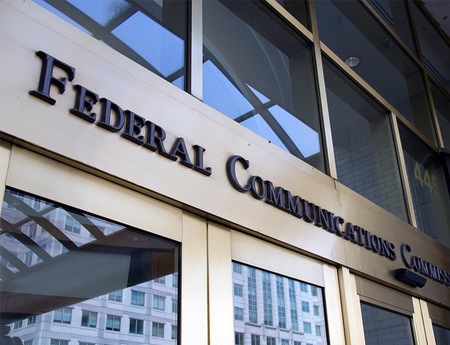NAB: FCC Wants TV Spectrum for 'Google Channels'

The smarter way to stay on top of broadcasting and cable industry. Sign up below
You are now subscribed
Your newsletter sign-up was successful
The National Association of Broadcasters told the FCC this week that its effort to reserve "vacant" channels after the incentive auction for unlicensed use is a dramatic policy shift that will harm broadcasters and viewers in an effort to create new channels for Google and Microsoft, who are pushing for unlicensed spectrum.
That came in meetings between NAB executives and top aides to FCC commissioners, where they said the FCC was proposing doing tangible harm for speculative gains according to a copy of the ex parte filing.
The FCC has proposed that in markets where there are available channels in the TV band after the incentive auction repack—available meaning not occupied by full-power TV stations—one or more should be reserved for unlicensed use.
In those meetings, NAB incentive auction point man Rick Kaplan and others argued that the so-called second-channel proposal would hurt broadcasters ability to offer a robust service and provide a lifeline to rural communities who rely on low power TV. (The FCC just this week took steps to help those low powers affected by the auction, including letting them share channels to stay in business and creating a new translator service, steps being met by one group representing those stations as a big victory.)
"[T]he Commission is proposing to create new 'Microsoft Channels' or 'Google Channels' at the direct expense of over-the-air viewers," they told the FCC staffers, adding: "Aside from evicting important services already serving consumers in the band, the proposal has the potential to severely curtail broadcaster innovation as well. Forcing full power stations to protect their new primary-status unlicensed neighbors would limit broadcasters’ ability to move to a more flexible standard should they elect to do so."
Broadcasters are working on a new interactive transmission standard that could help them be more competitive in a digital, mobile, online world.
In comments in September, NAB told the FCC that setting aside the last available vacant channel in a market for unlicensed use, rather than for licensed TV stations (including low powers and translators) would be unwise, unsound, unwarranted, and illegal, and could deal a blow to diversity in favor of well-heeled, concentrated industries.
The smarter way to stay on top of broadcasting and cable industry. Sign up below
Contributing editor John Eggerton has been an editor and/or writer on media regulation, legislation and policy for over four decades, including covering the FCC, FTC, Congress, the major media trade associations, and the federal courts. In addition to Multichannel News and Broadcasting + Cable, his work has appeared in Radio World, TV Technology, TV Fax, This Week in Consumer Electronics, Variety and the Encyclopedia Britannica.

